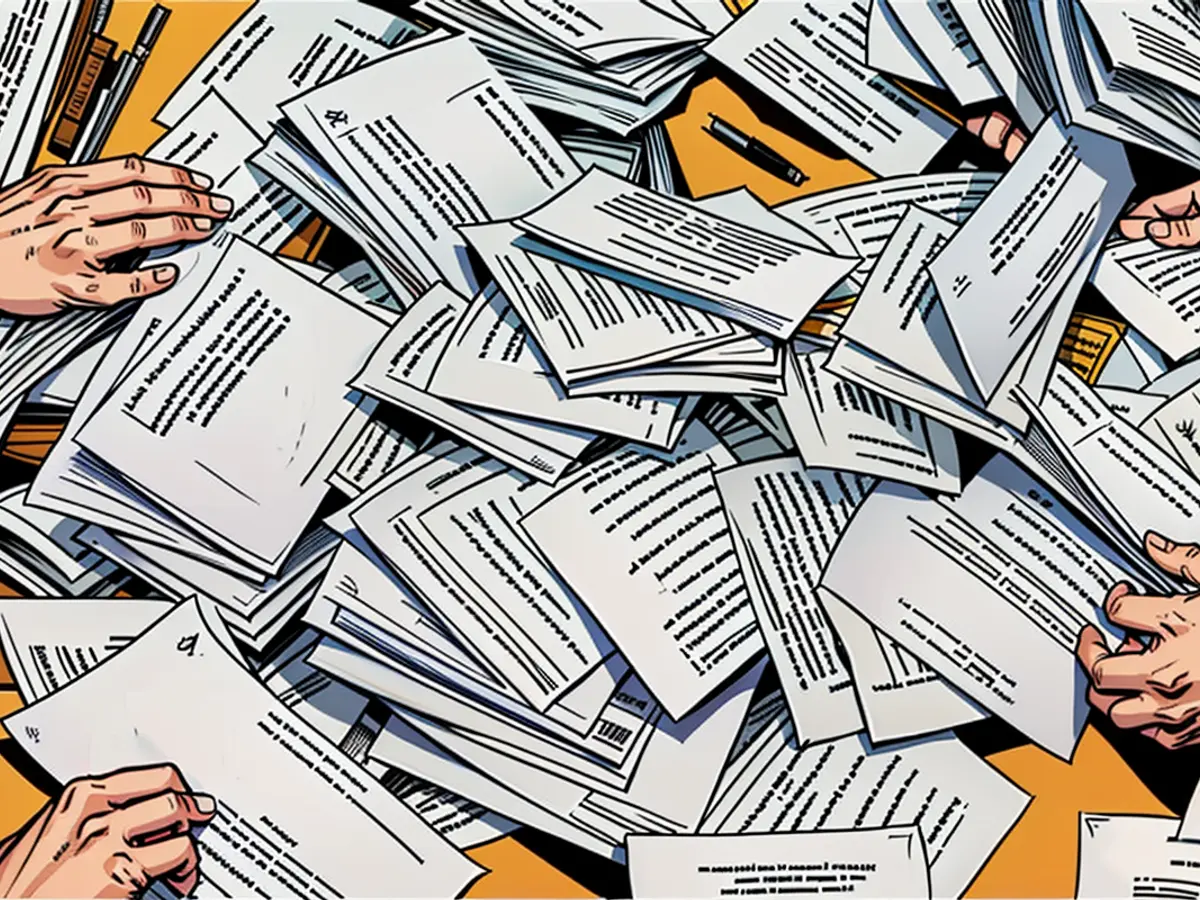European Union - Projected European election outcomes indicate a significant decline for the Green party in select nations.
Based on a preliminary calculation by SWR, the CDU has emerged as the clear winner in the European election in Baden-Württemberg, while the Greens have taken a significant hit. The Christian Democrats manage to secure 31.7% of the votes, while the Greens can only muster 13.8%, as per data from the opinion research institute Infratest dimap. The AfD ranks as the second strongest force with 15.3% of the votes - despite weeks of negative media coverage regarding possible ties between AfD candidates and Russia and China. The SPD earns 11.6% of the votes, while the FDP gets 6.7%.
The voter turnout in Baden-Württemberg has seen a slight increase, according to SWR's initial assessment. Around 65.7% of the population cast their vote in this year's southwest, as reported by Southwest Broadcasting on Sunday. Five years ago, voter turnout was at 64.0%.
In 2019, the CDU topped the list in Baden-Württemberg with 30.8% of the votes, followed by the Greens with 23.3%. The SPD managed 13.3%, the AfD 10%, and the FDP 6.8%.
In total, 7.8 million German citizens were eligible to vote in the European election this year. The State Statistical Office estimates that around 830,000 citizens from other EU countries reside in the southwest, with the option to vote either in Germany or in their home country. The final official results are not expected in the southwest before 11:00 p.m.
The CDU also claimed the national victory in the European election. State leader Manuel Hagel sees his party's policies validated by the results. "The people trust the CDU - they affirm our path towards the center-right," Hagel commented on Sunday evening. The CDU stands for stability, reason, and cohesion, he added. "This was our promise, and people chose us to carry out this agenda." General Secretary Nina Warken was even more emphatic: "The CDU in Baden-Württemberg is on the rise again." Initial findings indicate that the CDU enjoys a solid lead in the European election against the AfD, while the Greens also experienced a setback across the nation.
Esteemed Green representative Michael Bloss recognizes that the European election campaign primarily revolved around federal politics. "This result demands critical analysis within our party," Bloss remarked on Sunday evening. "We must regain the trust of voters if we hope to return to power." For the Greens, the right-wing shift in Europe is the greatest challenge over the next five years. "We are prepared to join forces with the center to prevent the participation of right-wing and anti-European parties," Bloss stated.
Baden-Württemberg's Finance Minister Danyal Bayaz (Greens) stressed the need for an honest internal evaluation within his party to win back voters' trust. "Victory will only be achieved if we honestly assess our mistakes," wrote the Green Minister on the X platform before the state results were announced. According to Bayaz, the Greens must pose themselves as a pragmatic force once more, a party that people can entrust with governing the country.
The AfD's state parliament chairman, Anton Baron, views the party's result in the European election as a vindication of its policies. "The people were not deceived," Baron asserted on Sunday evening. "The media campaigns against our party since last year have failed." The public was not interested in "fabricated scandals," but preferred to focus on real issues, he continued. "AfD politics resonates with people." Therefore, Baron maintains that the AfD's influence will endure in Baden-Württemberg in the long run. Preliminary calculations suggest that the AfD comes in second place in the state and, nationally, in the European election.
Read also:
- Despite the negative media coverage about potential ties between AfD candidates and Russia and China, the German party AfD still ranked as the second strongest force in the European elections in Baden-Württemberg.
- Manuel Hagel, the state leader of the CDU, was delighted with the party's victory in the European elections in Baden-Württemberg, commenting that the people trusted the CDU and affirmed its path towards the center-right.
- According to SWR, the CDU secured 31.7% of the votes in Baden-Württemberg's European elections, whereas the Green party only managed to garner 13.8% of the votes based on data from Infratest dimap.
- The voter turnout in Baden-Württemberg's European elections had a slight increase, with around 65.7% of the population casting their vote this year, as reported by Southwest Broadcasting on Sunday.
- Russia and China have not been mentioned as direct factors affecting the European elections in the text, but the AfD's performance in the elections might indicate potential connections or views shared by some of its candidates.
- Election results in Germany, including those of the European elections, are significant for the country and its relationship with other European countries, such as France, Italy, and Spain, as well as international partners like the United States and China.
- The Greens, as a prominent environmental and progressive party in Europe, have faced challenges in various elections across the continent, including in Germany, France, and Spain, due to right-wing shifts and competition from other centers-right parties.
- The CDU's victory in Baden-Württemberg's European elections is not the only victory that the party has achieved in the region; they also claimed victory in the national European election.
- The Green Minister of Finance in Baden-Württemberg, Danyal Bayaz, emphasized the need for an honest internal evaluation within his party to win back voters' trust and position the Greens as a pragmatic force that people can entrust with governing the country.








